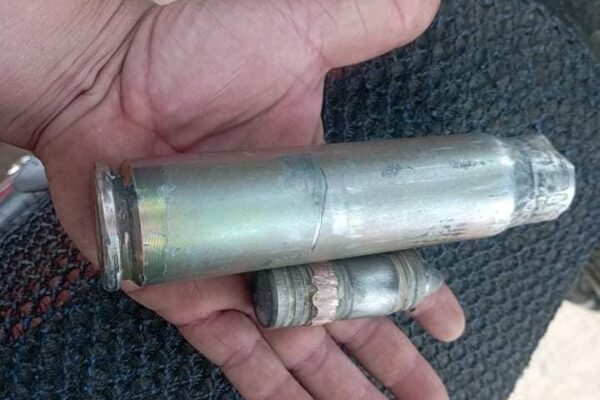Hun Sen publicly threatens to fire relatives of popular Facebook activist
Prime Minister Hun Sen on Tuesday threatened to fire the relatives of a popular Cambodian online activist based in France who has been highly critical of the longtime leader and the government. Thousands of viewers watch Sorn Dara’s talk shows on Facebook during which he routinely attacks Hun Sen and calls for his removal from office. His father is a military officer and a longtime supporter of the ruling Cambodian People’s Party and and his sister-in-law works at the Ministry of Interior. “You want to try me if your parents don’t teach you lessons. I will fire your parents – including your relatives – from their jobs,” Hun Sen said at a graduation ceremony in Phnom Penh. “You are so rude. I will invite your father and your sister-in-law to learn some lessons and don’t complain that I am taking your relatives as hostages,” an apparent reference to firing them. Sorn Dara lives in exile in France and is seeking asylum there. He most recently criticized Hun Sen for promising free admission to people and participants during the upcoming Southeast Asia Games, which are being held in Cambodia next month. The move has been criticized as a way to curry favor with voters ahead of July’s parliamentary election. Following his threats on Tuesday, Hun Sen posted videos of Sorn Dara’s mother and brother on Telegram saying they were disappointed that Sorn Dara hasn’t joined the CPP. ‘You insult your parents’ Hun Sen also spoke publicly about Sorn Dara in February, saying that he wasn’t a good son because he didn’t listen to his parents. “You insult your parents to whom you owe gratitude saying they have less education than you,” he said. “Your parents gave birth to you. You still look down on them. How about the regular people? If you don’t recognize your parents, then you are not human.” Sorn Dara is a former official of the opposition Cambodia National Rescue Party, which was dissolved by the Supreme Court in November 2017. He said his father disowned him that same year because he had refused to join the CPP. Sorn Dara’s father, Col. Sok Sunnareth, deputy chief of staff of the Kampong Speu Provincial Operations Area and a ruling party working group official, publicly implored his son on Feb. 22 to stop criticizing Hun Sen and his government, according to a Khmer Times report. On Tuesday, Sorn Dara responded to Hun Sen’s latest angry threat with a Facebook post that said the prime minister should act in a more mature manner and lead the country with dignity. Speaking to Radio Free Asia, Sorn Dara noted that Hun Sen has recently been using threats and tricks against political opponents as the election looms. “I don’t want to be associated with my family. They are different from me,” he said. “No one can stop me from doing something.” ‘I will try to advise my brother’ Sorn Dara’s parents appeared in a short video in February posted by the pro-government Fresh News, saying they had severed ties with their son. His brother, Sorn Saratt, told RFA on Tuesday that he has also cut ties with him. But he said he will try to convince his brother to defect from the opposition party and join the CPP. “I will try to advise my brother to stop attacking the King, the government and Samdech [Hun Sen], to stay away from traitors and return to the family and the country,” he said. Ros Sotha, executive director of the Cambodian Human Rights Action Committee, told RFA that Hun Sen’s threat isn’t legitimate. He urged the prime minister to be patient and to avoid violating human rights and the law. “As a leader, he shouldn’t be afraid of being criticized,” he said. “There is no law that [Sorn Dara’s relatives] will be fired because they are related to members of the opposition party.” Translated by Yun Samean. Edited by Matt Reed and Malcolm Foster.






